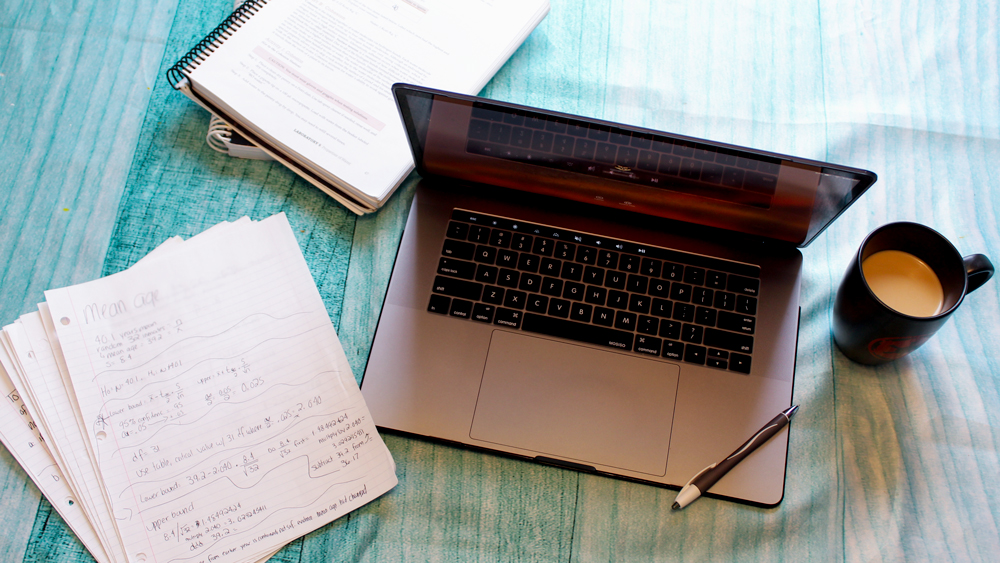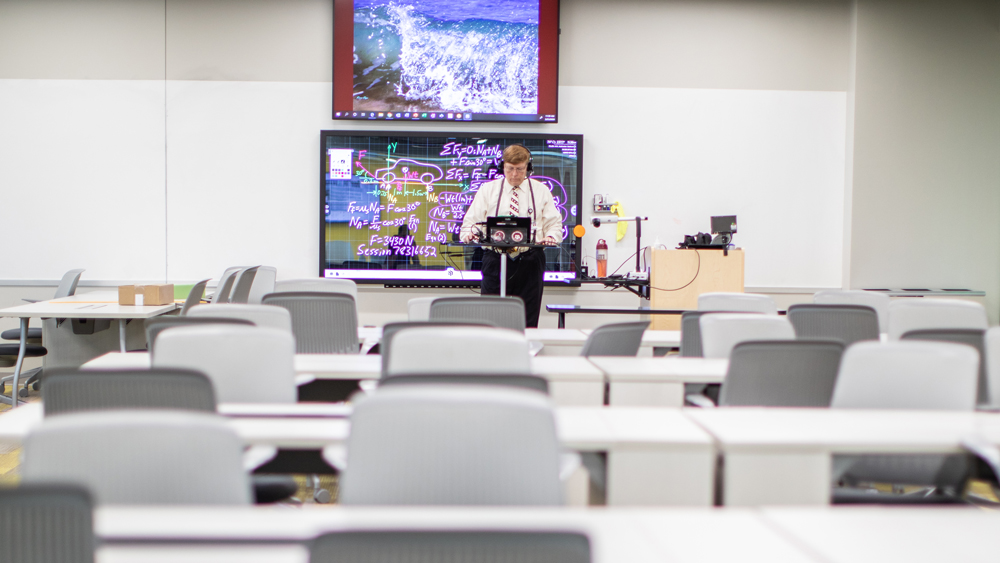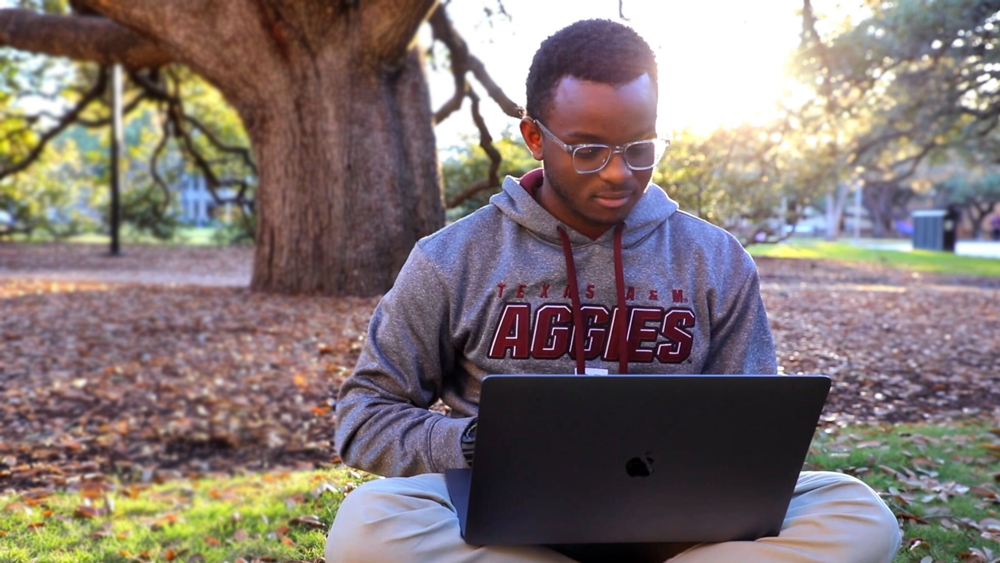
Ocean engineers are no strangers to weathering the storm and uncharted waters. Adaptability and resourcefulness – be it from a natural disaster, change in tides or COVID-19 – are skills honed by the unique dual-campus set up of the Department of Ocean Engineering at Texas A&M University.
For the safety of students, faculty and staff, the College of Engineering transitioned all classes to an online format for the remainder of the spring 2020 semester and the following summer sessions. While this change from physical to virtual classes may have been a shock to some, students in the ocean engineering department are well versed in learning from a distance – those in College Station taking courses from professors in Galveston and vice versa all year round.
With years of experience under their belts, ocean engineering graduating seniors Anna O’Connor from the Galveston campus and Loicka Baille from the College Station campus are sharing their experience and advice on how to succeed in an online world of education.

“I think the transition has gone really well,” said O’Connor. “All of my professors seemed to adapt very quickly and have been very understanding of any issues we may have.”
“Texas A&M has been handling this new situation very well and I am glad the university took the appropriate measures to keep us all safe,” said Baille. “However, for graduating seniors, this particular semester is not like any other. It is an exciting and stressful semester where students often are trying to finish their academic curriculum, find a job and also enjoy their last moments as college kids. Unfortunately, the conditions we were put in just do not enable us to live the full experience.”
Nostalgic, but looking toward the future with determination, both O’Connor and Baille took a look back on their many years of experience with virtual classes to provide those around them with their top tips and tricks – hoping that their final semester could help bolster and bring together every student facing the COVID-19 pandemic.
O’Connor explained that, while studying for online classes hasn’t been very different to her from studying for in-person courses, taking advantage of new online resources has been extremely helpful.
“Since my professors record the classes, we are able to go back and re-watch them if we have any issues while studying and doing homework,” said O’Connor. “It also makes taking notes much easier since you can pause if needed and go back to things you missed.”

In addition to utilizing these new avenues of learning, O’Connor encourages her peers to create a group chat for classes, as it often quicker to ask questions and get answers through it than by emailing a professor. However, while having a class full of aspiring engineers is a great asset for studying and learning from one another, she also stressed the importance of reaching out to professors when needed. They are there to help and support students however they can.
While studying in pajamas and having snacks readily available all day might sound like paradise, studying from home blurs the lines between professional and personal life. To this end, both Baille and O’Connor stress one thing: Time management.
“I found it very difficult to draw a line between study/work time and personal time,” said Baille. “It is easy to either ‘over work’ or ‘under work’ because the physical boundary of campus does not exist anymore. Most of my classes are done through Zoom, which helps a lot with staying on top of the material. But I have a class that is video-recorded and that can be challenging, as it is so easy to put off until later. But my overall advice would be to consider virtual class as an 8 a.m. – 5 p.m. job (assuming you don’t have classes after 5 p.m.).”
“Try and follow a schedule: set times to do homework and study like you would during a normal semester,” said O’Connor. “If you have a morning class wake up 30 minutes or so before so that you have time to wake up and get in the right mindset. It also helps to have a specific place to work on school things to keep school and home life separate. If you try and do homework in the same place you usually sit and watch TV, it can often be hard to focus. Find a quiet spot somewhere in the house and make that your school work area.”

While this was not the end of her undergraduate experience that Baille expected, she is excited to begin her graduate career at the Massachusetts Institute of Technology - Woods Hole Oceanographic Institution (MIT-WHOI) joint program.
“Personally, I wish I knew that the Friday before spring break was going to be my last day as an undergraduate,” said Baille. “I am a bit of a nostalgic in general but I wish I knew it would be the last time I’d see all my classmates together. It is just sad that we didn’t get to have closure, that we won’t get a chance to say a formal goodbye to professors that followed us for the past four or five years, to the buildings we spent so many hours working at, and to Texas A&M as a whole.”
For Baille and O’Connor, like many students, college is a time of discovery and charting new horizons. It is the bridge into a career and adulthood filled with friendship, educational experiences and inspiration that drives innovation and success. While this time is not the norm, students are most certainly not alone.